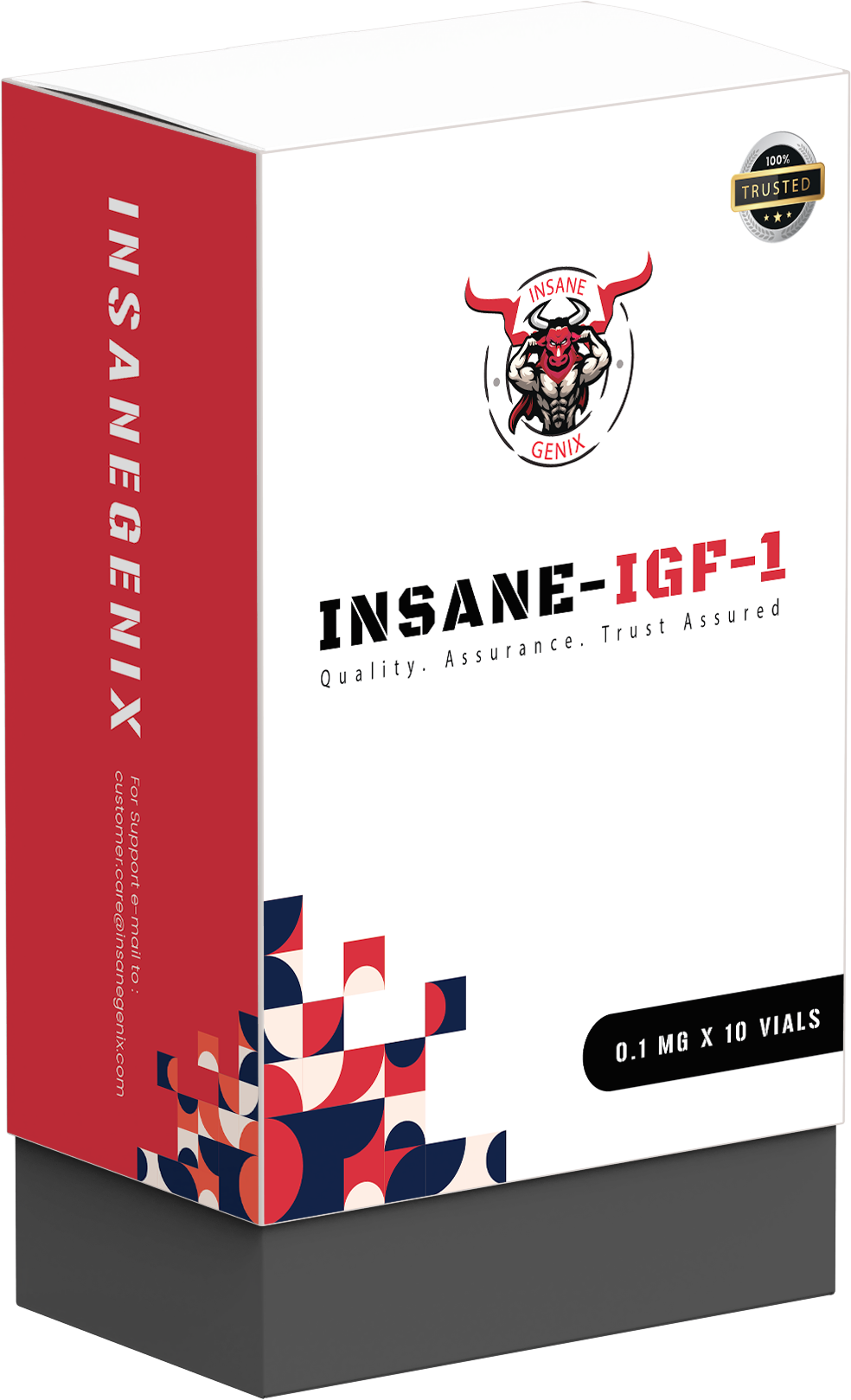
InsaneGenix IGF
Insulin-Like Growth Factor (IGF)-1 (4-70), also known as IGF-1 DES, is a non-glycosylated polypeptide chain consisting of 67 amino acids and a molecular mass of 7,372 Da. In vitro studies have shown that IGF-1 DES is ten times more potent than IGF-1 at stimulating hypertrophy and proliferation in cultured cells. It is believed to be generated through post-translational modification of circulating mature IGF-1 via protease action. IGF-1 DES is a cleaved form of IGF-1, containing amino acids 4-70. This structure allows for amplified effects of the IGF-1 protein in the more stable form of DES 1,3 molecule peptide protein fragment. IGF-1 DES belongs to the IGF-1 family of peptides that play important roles in mammalian growth and development. Despite being shorter, IGF-1 DES has comparable physiological effects and can induce significant changes in protein physical properties. Early studies revealed that growth hormone indirectly stimulates cartilage sulfate incorporation through a serum factor known as "sulfation factor" or somatomedin, later truncated to DES IGF-1.
What is IGF-1 DES?
IGF-1 DES is an insulin-related peptide naturally produced by the body. It affects the hormone system, primarily in the liver, and regulates energy metabolism and fat loss. Additionally, IGF-1 DES stimulates cell production and may contribute to anti-aging and tissue repair. Compared to IGF-1 and other counterparts, IGF-1 DES is more potent, providing long-term benefits despite its shorter duration of action (20-30 minutes). For optimal results, IGF-1 DES should be administered directly into the muscles you want to transform and change over time. It can stimulate tissue growth during training by targeting the lactic acid produced by the muscles, allowing for a longer duration of action compared to other IGF-1 variants.
How much IGF-1 DES should I take?
A typical protocol involves administering 50-150mcg of IGF-1 DES multiple times a day into the specific region you want to promote growth. For example, if you wish to inject 150mcg of IGF-1 DES into the thigh, you would inject it directly into that area. The recommended administration time is prior to training, targeting specific areas for injection.
What are the side effects of IGF-1 DES?
IGF-1 DES may increase tumor size in patients who already have cancer. It does not affect individuals without cancer, but long-term use can lead to tumor development. Hypoglycemia can occur due to dosage miscalculation or overuse of IGF-1 DES. It is important to avoid using this peptide for headaches, as it can be easily abused. Positive side effects of IGF-1 DES include regulating fat metabolism for energy use, resulting in fat loss, contributing to anti-aging effects by slowing down the aging process and promoting cell regeneration. Low levels of IGF-1 are associated with heart failure, impaired brain cell regulation, reduced neuron function, and muscle tissue breakdown. Therefore, IGF-1 DES can help address these issues by increasing nutrient transportation, enhancing nerve tissue regeneration, and promoting hyperplasia in muscle cells for fuller muscle tissue.
How should I store IGF-1 DES?
You can store IGF-1 DES as a liquid or as a powder in a cool area of your home. If stored in the refrigerator, it should be warmed up to room temperature before use.